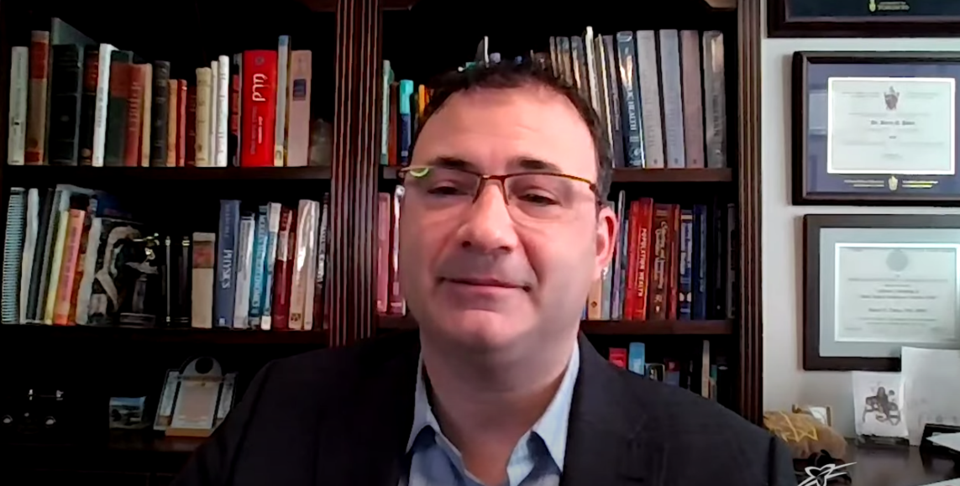York Region Public Health is again stressing the importance of vaccination and is warning of the burden on hospitals as the seventh wave of COVID-19 is upon us.
The region is experiencing a significant surge of COVID-19 and hospitals are becoming overburdened, according to York Region medical officer of health Dr. Barry Pakes. He said this is due to the newer omicron BA.5 sub-variant, which is more transmissible.
Vaccination is important as a collective action to address the situation, he said. He added that hospitals are in a poor position to handle things, due to staffing problems and procedure backlogs from previous waves.
“The additional burden on hospitals comes at a time where we cannot afford it,” Pakes said. “We can make a difference for each of us and collectively.”
York Region's hospitalization totals have not updated since July 5, as a result of the nationwide Rogers network outage preventing a Friday update. As of July 5, the region had 46 hospitalizations, with wastewater data indicating an upward surge in cases.
Pakes told NewmarketToday that although COVID-19 is circulating at high levels, it is not expected to reach levels as high as the January wave.
“It’s going to cause an increase in hospitalizations. We very much don’t have the capacity for that, but we’re not predicting that it’s going to be a catastrophic wave,” he said.
Third-dose vaccinations are critical, Pakes said. Many in the region have avoided getting one, with about 58 per cent of the 12 and older population with three doses, compared to 89 per cent at two doses.
It is important to reframe our understanding of the COVID-19 vaccine, and that two-doses is not actually fully-vaccinated, he added.
“The COVID-19 vaccine is fundamentally a three-dose vaccine,” he said. “We also know that immunity wanes over time, so even if you’ve had COVID already, you can get it again. The vaccine can make a difference.”
But Pakes acknowledged a key difference lies in how two-dose vaccines were mandated, and a third dose was not. He said it is an "uphill battle" to convince more to get another vaccination.
Still, despite cases rising, Pakes said from a public health perspective, they would not recommend a third-dose mandate right now. He said there is a distinction between a strictly medical perspective and a public health one.
“When I look at the medical perspective, of course it would be best if everyone had three doses, and those that need it, four. And some kind of mandate, sure,” he said. “From a public health perspective, understanding politics and social science, economics, it just doesn’t make sense at this time.”
That applies similarly regarding mask mandates, Pakes said. However, he said things could change in the fall as things worsen, and masking stands to become even more important with other respiratory illnesses at that time.
“That’s not outside the realm of possibility,” he said. “What probably is outside the realm of possibility is the kind of lockdowns we saw previously … We’re not going in that direction, given we do have these good vaccines and other good vaccines in the pipeline.”
Most Ontarians are not yet eligible for a fourth dose, which is only for those 60 and older or in a vulnerable category. Approximately 8.3 per cent of residents over 12 have received a fourth dose, though the province has indicated the rollout could come soon.
“I’m hoping to soon have my fourth dose and am looking forward to sharing upcoming eligibility with you,” Pakes said.
The region is preparing to roll vaccines out to more people, he added. Having that occur over multiple months instead of all at once should help, he said.
“I’m confident York Region will be able to handle an increase in folks coming to get their fourth dose over the next couple of months,” he said. “We’ve been certainly planning surge capacity, whether in vaccination or outbreak management.”



